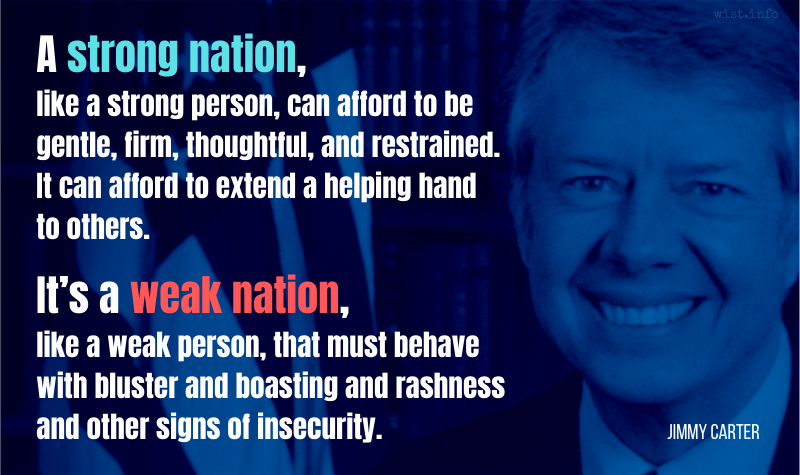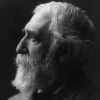So this idea of doing good to others only for their sake is absurd. You want to do it, not simply for their sake, but for your own; because a perfectly civilized man can never be perfectly happy while there is one unhappy being in this universe.
Robert Green Ingersoll (1833-1899) American lawyer, agnostic, orator
Speech (1886-11-14), “A Lay Sermon,” American Secular Union annual congress, Chickering Hall, New York City
(Source)
Quotations about:
helping
Note not all quotations have been tagged, so Search may find additional quotes on this topic.
You can’t save others from themselves because those who make a perpetual muddle of their lives don’t appreciate your interfering with the drama they’ve created. They want your poor-sweet-baby sympathy, but they don’t want to change. This is a truth I never seem to learn.
While then the worst man is he who displays vice both in his own affairs and in his dealings with his friends, the best man is not he who displays virtue in his own affairs merely, but he who displays virtue towards others; for this is the hard thing to do.
[κάκιστος μὲν οὖν ὁ καὶ πρὸς αὑτὸν καὶ πρὸς τοὺς φίλους χρώμενος τῇ μοχθηρίᾳ, ἄριστος δ᾽ οὐχ ὁ πρὸς αὑτὸν τῇ ἀρετῇ ἀλλὰ πρὸς ἕτερον: τοῦτο γὰρ ἔργον χαλεπόν.]
Aristotle (384-322 BC) Greek philosopher
Nicomachean Ethics [Ἠθικὰ Νικομάχεια], Book 5, ch. 1 (5.1.18) / 1130a.5-8 (c. 325 BC) [tr. Peters (1893)]
(Source)
(Source (Greek)). Alternate translations:Now he is the basest of men who practises vice not only in his own person, but towards his friends also; but he the best who practises virtue not merely in his own person but towards his neighbour, for this is a matter of some difficulty.
tr. Chase (1847), ch. 2]Worst of men is he whose wickedness affects not himself alone but his fellow with him; best of men is he whose virtue affects not himself alone but his fellow with him; for such a one has in all sooth a hard task.
[tr. Williams (1869)]As then the worst of men is he who exhibits his depravity both in his own life and in relation to his friends, the best of men is he who exhibits his virtue not in his own life only but in relation to others; for this is a difficult task.
[tr. Welldon (1892)]Now the worst man is he who exercises his wickedness both towards himself and towards his friends, and the best man is not he who exercises his virtue towards himself but he who exercises it towards another; for this is a difficult task.
[tr. Ross (1908)]As then the worst man is he who practises vice towards his friends as well as in regard to himself, so the best is not he who practises virtue in regard to himself but he who practises it towards others; for that is a difficult task.
[tr. Rackham (1934)]The worst sort of person, then, is the one who uses his depravity both in relation to himself and in relation to his friends, whereas the best sort is not the one who uses his virtue in relationship to himself but the one who uses it in relation to another person, since that is difficult work.
[tr. Reeve (1948)]The worst man, then, is the one whose evil habit affects both himself and his friends, while the best man is one whose virtue is directed not to himself, but to others, for this is a difficult task.
[tr. Apostle (1975)]So the worst person is the one who exercises his wickedness towards both himself and his friends, and the best is not the one who exercises his virtue towards himself but the one who exercises it towards another; because this is a difficult task.
[tr. Thomson/Tredennick (1976)]So the worst person is the one who exercises wickedness in relation to himself and in relation to his friends, and the best is not he who exercises his virtue in relation to himself but the one who exercises it in relation to others, since this is a difficult thing to do.
[tr. Crisp (2000)]Worst, then, is he who treats both himself and his friends in a corrupt way, but best is he who makes use of virtue not in relation to himself but in relation to another. For this is a difficult task.
[tr. Bartlett/Collins (2011)]
We’re here to use our intelligence, yes, but that ain’t everything. It’s our duty to see through things, but also to see things through. Or I’ll put it another way. We’re not primarily put on this earth to see through one another, but to see one another through.
Peter De Vries (1910-1993) American editor, novelist, satirist
Let Me Count the Ways (1965)
(Source)
Do I seem to say, “Let us eat and drink, for to-morrow we die?” Far from it; on the contrary, I say, “Let us take hands and help, for this day we are alive together.”
William Kingdon Clifford (1845-1879) English mathematician and philosopher
“The First and the Last Catastrophe,” Popular Science Monthly (Jul 1875)
(Source)
The meaning of good & bad, of better & worse, is simply helping or hurting.
Now, God has thus ordered things that we may learn to bear one another’s burdens; for there is no man without his faults, none without his burden. None is sufficient in himself; none is wise in himself; therefore, we must support one another, comfort, help, teach, and advise one another.
[Nunc autem Deus sic ordinavit, ut discamus alter alterius onera portare, quia nemo sine defectu, nemo sine onere, nemo sibi sufficiens, nemo sibi satis sapiens, sed oportet invicem portare, invicem consolari, pariter adjuvare, et ammonere.]
Thomas à Kempis (c. 1380-1471) German-Dutch priest, author
The Imitation of Christ [De Imitatione Christi], Book 1, ch. 16, v. 4 (1.16.4) (c. 1418-27) [tr. Sherley-Price (1952)]
(Source)
See Galatians 6:2.
(Source (Latin)). Alternate translations:Therefore God hath so ordained that each one of us shall learn to bear another’s burden: for in this world no man is without default, no man without burden, no man sufficient to himself, nor no man wise enough of himself. Wherefore it behoveth each one of us to bear the burden of others, to comfort others, to help others, to inform others, and to instruct and admonish others in all charity.
[tr. Whitford/Raynal (1530/1871)]Therefore, God has so ordained that each one of us shall learn to bear another's burden, for in this world no man is without fault, no man without burden, no man sufficient to himself, and no man wise enough of himself. And so it behooves each one of us to bear the burden of others, to comfort others, to help others, to counsel others, and to instruct and admonish others in all charity.
[tr. Whitford/Gardiner (1530/1955)]But now God hath thus ordained that every man should have a burthen of his owne, let us learne to support and beare one anothers burthens. For there is none without defect, none without his burthen, no man sufficient by himselfe, no man wise enough of himselfe. But we ought to bear with one another, comfort one another, equally helpe, instruct, and admonish one another.
[tr. Page (1639), 1.16.11-13]But, as the present Condition of the World is ordered, God hath furnished us with constant Occasions of bearing one another's Burthens. For there is no Man lives without his Failings; no Man that is so happy, as never to give Offence; no Man without his Load of Trouble; no Man so sufficient, as never to need Assistance; none so wise, but the Advice of others may, at some time or other, be useful and necessary for him: And therefore we should think ourselves under the strongest Engagements to comfort and relieve, and instruct, and admonish, and bear with one another.
[tr. Stanhope (1696; 1706 ed.)]But in the present fallen state of human nature, it is his Blessed Will, that we should learn to bear one another's burthens: and as no man is free from some burthen of sin or sorrow; as none has strength and wisdom sufficient for all the purposes of life and duty, the necessity of mutual forbearance, mutual consolation, mutual support, instruction and advice, is founded upon our mutual imperfections, troubles and wants.
[tr. Payne (1803)]But now God hath thus ordered it, that we may learn to bear one another's burdens; for no man is without fault; no man but hath his burden; no man sufficient of himself; no man wise enough of himself; but we ought to bear with one another, comfort one another, help, instruct, and admonish one another.
[ed. Parker (1841)]But in the present fallen state of human nature, it is His Blessed Will that we should learn to bear one another's burthens: and as no man is free from some burthen of sin or sorrow, as none has a strength and wisdom sufficient for all the purposes of life and duty, the necessity of mutual forbearance, mutual consolation, mutual support, instruction, and advice, is founded upon our mutual imperfections, troubles, and wants.
[tr. Dibdin (1851)]But now God has so ordered it, that we learn to bear one another's burdens; for there is no man without defect, no one without his burden, no man sufficient for himself, no man wise enough for himself; but we must support one another, comfort one another, assist, instruct, and admonish one another.
[ed. Bagster (1860)]But now hath God thus ordained, that we may learn to bear one another’s burdens, because none is without defect, none without a burden, none sufficient of himself, none wise enough of himself; but it behoveth us to bear with one another, to comfort one another, to help, instruct, admonish one another.
[tr. Benham (1874)]But now God hath thus ordered it, that we may learn to bear one another's burdens; for no man is without fault; no man but hath his burden; no man is sufficient of himself; no man is wise enough of himself; but we ought to bear with one another, comfort one another, help, instruct, and admonish one another.
[tr. Anon. (1901)]But God has so ordained, that we may learn to bear with one another's burdens, for there is no man without fault, no man without burden, no man sufficient to himself nor wise enough. Hence we must support one another, console one another, mutually help, counsel, and advise.
[tr. Croft/Bolton (1940)]But now God has so arranged that we may learn to bear each other’s burdens, for none is faultless, none without a burden, none sufficient to himself, none wise enough in himself: but we must bear with each other, comfort each other, help, teach, and advise each other.
[tr. Daplyn (1952)]He will have us learn to bear the burden of one another's faults. Nobody is faultless; each has his own burden to bear, without the strength or the wit to carry it by himself; and we have got to support one another, console, help, correct, advise one another, each in his turn.
[tr. Knox-Oakley (1959)]As it is, [God] has made things the way they are so that we may learn to bear the burden of one another’s failings. There is no one free from weakness, no one without a load to carry, no one who is self-sufficient, no one who can dispense with others’ help; and so it is our duty to support each other, to comfort each other, to help, guide and advise each other.
[tr. Knott (1962)]It is God’s plan that we should learn to carry each other's troubles . There is no one free of faults, no one burdenless, no one self-sufficient, no one clever enough to stand alone. We must support one another, comfort one another, help build up one another by instruction and advice.
[tr. Rooney (1979)]But now God has so arranged things that we may learn to bear each other's burdens, for no one is without faults, no one is without burdens, no one is wholly self-sufficient, no one has enough wisdom all by himself. That being the case, we must support and comfort each other; together we must help, teach, and advise one another.
[tr. Creasy (1989)]
We don’t have to be “successful,” only valuable. We don’t have to make money, only a difference, and particularly in the lives society counts least and puts last.
William Sloane Coffin, Jr. (1924-2006) American minister, social activist
Credo, “Faith, Hope, Love” (2004)
(Source)
A strong nation, like a strong person, can afford to be gentle, firm, thoughtful, and restrained. It can afford to extend a helping hand to others. It’s a weak nation, like a weak person, that must behave with bluster and boasting and rashness and other signs of insecurity.
Jimmy Carter (b. 1924) American politician, US President (1977-1981), Nobel laureate [James Earl Carter, Jr.]
“Warm Hearts and Cool Heads,” speech, Liberal Party dinner, New York City (14 Oct 1976)
(Source)
The title of the speech was from a phrase coined by Adlai Stevenson.
What good is it, my brothers and sisters, if someone claims to have faith but does not have works? Surely that faith cannot save, can it? If a brother or sister is naked and lacks daily food and one of you says to them, “Go in peace; keep warm and eat your fill,” and yet you do not supply their bodily needs, what is the good of that? So faith by itself, if it has no works, is dead.
But someone will say, “You have faith, and I have works.” Show me your faith apart from works, and I by my works will show you faith.The Bible (The New Testament) (AD 1st - 2nd C) Christian sacred scripture
James 2:14-18 [NRSV (2021 ed.)]
(Source)
Alternate translations:What doth it profit, my brethren, though a man say he hath faith, and have not works? Can faith save him? If a brother or sister be naked, and destitute of daily food, and one of you say unto them, Depart in peace, be ye warmed and filled; notwithstanding ye give them not those things which are needful to the body; what doth it profit? Even so faith, if it hath not works, is dead, being alone. Yea, a man may say, Thou hast faith, and I have works: shew me thy faith without thy works, and I will shew thee my faith by my works.
[KJV (1611)]Take the case, my brothers, of someone who has never done a single good act but claims that he has faith. Will that faith save him? If one of the brothers or one of the sisters is in need of clothes and has not enough food to live on, and one of you says to them, 'I wish you well; keep yourself warm and eat plenty', without giving them these bare necessities of life, then what good is that? Faith is like that: if good works do not go with it, it is quite dead. This is the way to talk to people of that kind: 'You say you have faith and I have good deeds; I will prove to you that I have faith by showing you my good deeds -- now you prove to me that you have faith without any good deeds to show.'
[JB (1966)]My friends, what good is it for one of you to say that you have faith if your actions do not prove it? Can that faith save you? Suppose there are brothers or sisters who need clothes and don't have enough to eat. What good is there in your saying to them, “God bless you! Keep warm and eat well!”—if you don't give them the necessities of life? So it is with faith: if it is alone and includes no actions, then it is dead.
But someone will say, “One person has faith, another has actions.” My answer is, “Show me how anyone can have faith without actions. I will show you my faith by my actions.”
[GNT (1976)]How does it help, my brothers, when someone who has never done a single good act claims to have faith? Will that faith bring salvation? If one of the brothers or one of the sisters is in need of clothes and has not enough food to live on, and one of you says to them, 'I wish you well; keep yourself warm and eat plenty,' without giving them these bare necessities of life, then what good is that? In the same way faith, if good deeds do not go with it, is quite dead. But someone may say: So you have faith and I have good deeds? Show me this faith of yours without deeds, then! It is by my deeds that I will show you my faith.
[NJB (1985)]My brothers and sisters, what good is it if people say they have faith but do nothing to show it? Claiming to have faith can’t save anyone, can it? Imagine a brother or sister who is naked and never has enough food to eat. What if one of you said, “Go in peace! Stay warm! Have a nice meal!”? What good is it if you don’t actually give them what their body needs? In the same way, faith is dead when it doesn’t result in faithful activity. Someone might claim, “You have faith and I have action.” But how can I see your faith apart from your actions? Instead, I’ll show you my faith by putting it into practice in faithful action.
[CEB (2011)]
It is one of the most beautiful compensations of this life that no man can sincerely try to help another without helping himself.
Charles Dudley Warner (1829–1900) American essayist and novelist
Backlog Studies, Fifth Study, sec. 3 (1872)
(Source)
Originally published in Scribner's Monthly (Apr 1872). Frequently misattributed to Ralph Waldo Emerson.













